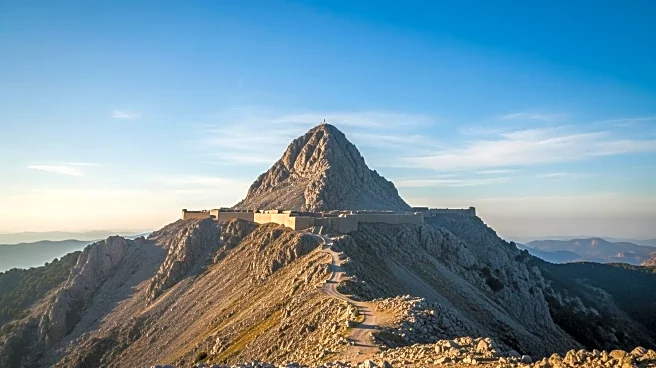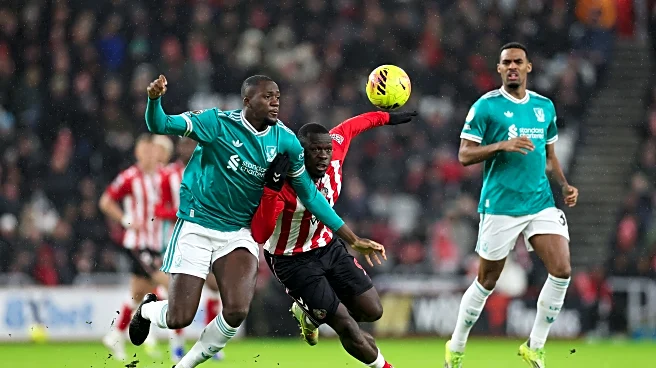What's Happening?
Prime Minister Benjamin Netanyahu has stated that Israel will not relinquish control of the Golan Heights, despite ongoing security discussions with Syria. The talks aim to establish a security arrangement that includes the demilitarization of southwestern Syria and the protection of Israel's Druze allies in Jabal al-Druze. Netanyahu's firm stance on the Golan Heights reflects Israel's strategic interests in maintaining control over the region, which has been a point of contention in Middle Eastern geopolitics.
Why It's Important?
The Golan Heights is a strategically significant area that has been under Israeli control since 1967. Netanyahu's declaration underscores Israel's commitment to its security and territorial integrity, which has implications for regional stability and diplomatic relations. The discussions with Syria could influence the broader geopolitical landscape, affecting alliances and tensions in the Middle East. Israel's position may also impact its relations with international stakeholders who have differing views on the status of the Golan Heights.
What's Next?
The security talks with Syria may lead to further negotiations or agreements that could alter the dynamics in the region. Israel's stance on the Golan Heights will likely continue to be a focal point in diplomatic discussions, potentially influencing future peace initiatives or conflicts. The international community may respond to Netanyahu's statement, with reactions varying based on geopolitical interests and alliances.
Beyond the Headlines
The situation highlights the complex interplay of historical claims, security concerns, and international diplomacy in the Middle East. The Golan Heights has been a symbol of broader regional conflicts, and its status remains a contentious issue in peace negotiations. The discussions may also prompt debates about the rights and protections of minority groups, such as the Druze, in conflict zones.











